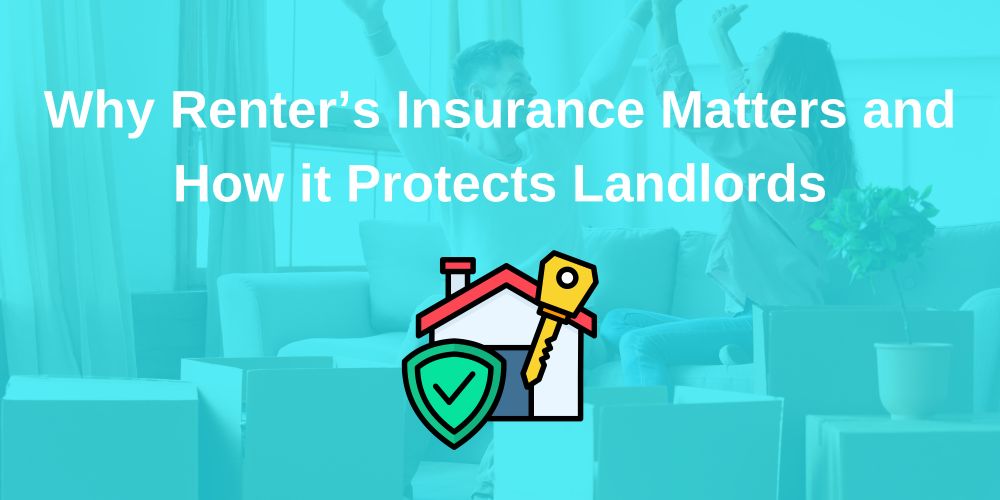As a landlord, you’re constantly balancing risk, protection, and peace of mind—for both you and your tenants. One of the simplest, most affordable tools in that toolbox is renter’s insurance.
But requiring it isn’t enough. To truly stay informed and protected, landlords should also be listed as an additional interested party on each policy. Here’s why that distinction matters and how it can save you from unexpected liability and costly gaps in communication.
🔍 What Is Renter’s Insurance?
Renter’s insurance is a policy tenants carry to protect their personal belongings and provide liability coverage for accidents or damages they may cause inside the property.
Most policies cover:
Personal property loss due to theft, fire, or water damage
Liability for guest injuries inside the rental
Temporary housing in case of a disaster or repair-related displacement
In short, it protects tenants from financial loss and can help prevent sticky legal situations for you, the landlord.
🧾 Why Require It?
Requiring renter’s insurance in your lease isn’t just about protecting tenants. It’s a layer of protection for you, too.
Here’s what it does for landlords:
Reduces your liability in case of tenant-caused damage (e.g., kitchen fires, water leaks, pet incidents)
Keeps your homeowner’s or landlord policy untouched by small tenant-related claims
Promotes more responsible tenants who understand the value of coverage
Reduces disputes during move-out regarding lost or damaged property
And here’s the best part: most policies cost tenants $10–$20/month. It’s a small investment with big protection.
🛑 The Problem with Unverified Policies
Many landlords require renter’s insurance but never actually verify if:
The tenant followed through and got it
The policy stays active
It wasn’t canceled mid-lease
Here’s where things get risky.
If the tenant cancels their policy—and you’re not listed—you’ll never know. That’s why simply requiring renter’s insurance isn’t enough.
✅ The Solution: Additional Interested Party
When you’re listed as an additional interested party (also known as an interested party or certificate holder), you don’t gain coverage—but you do gain visibility.
You’ll receive automatic notifications if the tenant:
Cancels the policy
Fails to renew
Changes coverage terms
This keeps you informed and allows you to enforce the lease before something goes wrong.
💡 Important: Being an "additional insured" is not the same as "additional interested party." You don’t need to be added for coverage—just for communication.
📑 How to Implement This in Your Lease
Add a clause requiring all tenants to maintain active renter’s insurance during the lease term.
Specify the required coverage amount (typically $100,000 in liability minimum).
List your company name and email address in the lease as the "additional interested party."
Request a certificate of insurance (COI) before move-in.
Follow up periodically to ensure coverage remains active.
Most providers like Lemonade, State Farm, and Assurant allow tenants to easily add a landlord during policy setup. It takes less than 5 minutes and protects both parties.
🧠 Real-World Example
Imagine a tenant leaves the bathtub running, causing water damage to the unit below. If they don’t have renter’s insurance, guess who’s left to cover the damages?
You are. Either through your own policy or out of pocket.
But if the tenant has coverage—and you’re listed on it—you’re informed, they’re responsible, and the claim doesn’t touch your premiums.
📈 Final Thoughts
Renter’s insurance is one of the most overlooked risk-management tools in real estate, but it’s also one of the most powerful. And listing yourself as an additional interested party ensures you’re not left in the dark when things change.
If you're a landlord in San Diego or beyond, now’s the time to tighten your lease language and update your tenant requirements.
Protect your property. Protect your business. Stay informed.
🏡 Need Help Managing Tenant Compliance?
At Beyond Property Management, we stay ahead of risk by requiring renter’s insurance, verifying documentation, and staying listed for real-time policy alerts.
Want help keeping your investments protected from day one? Let’s talk.
📞 Call Us (858) 222-4663
📧 hello@bpmsd.com






